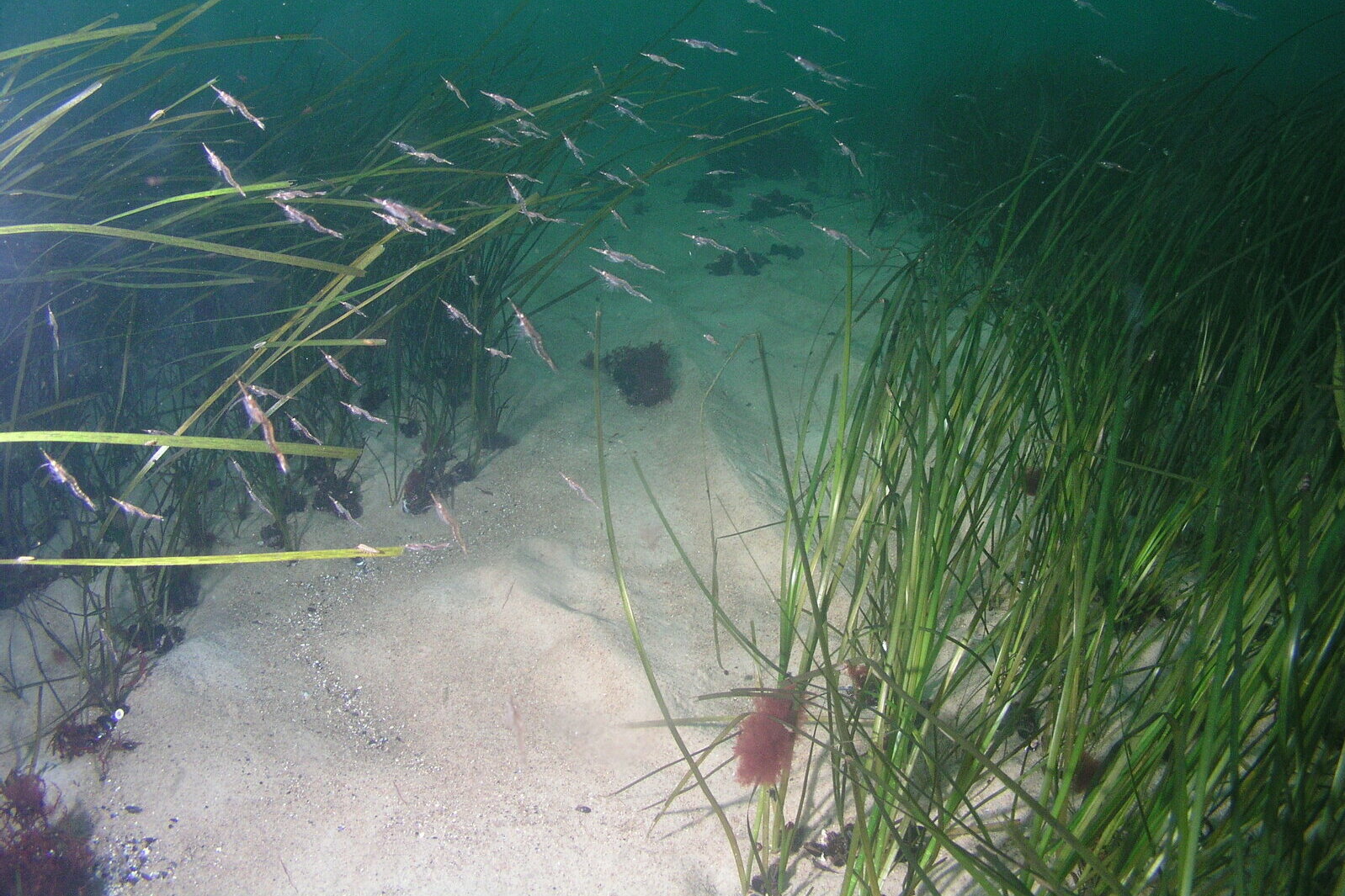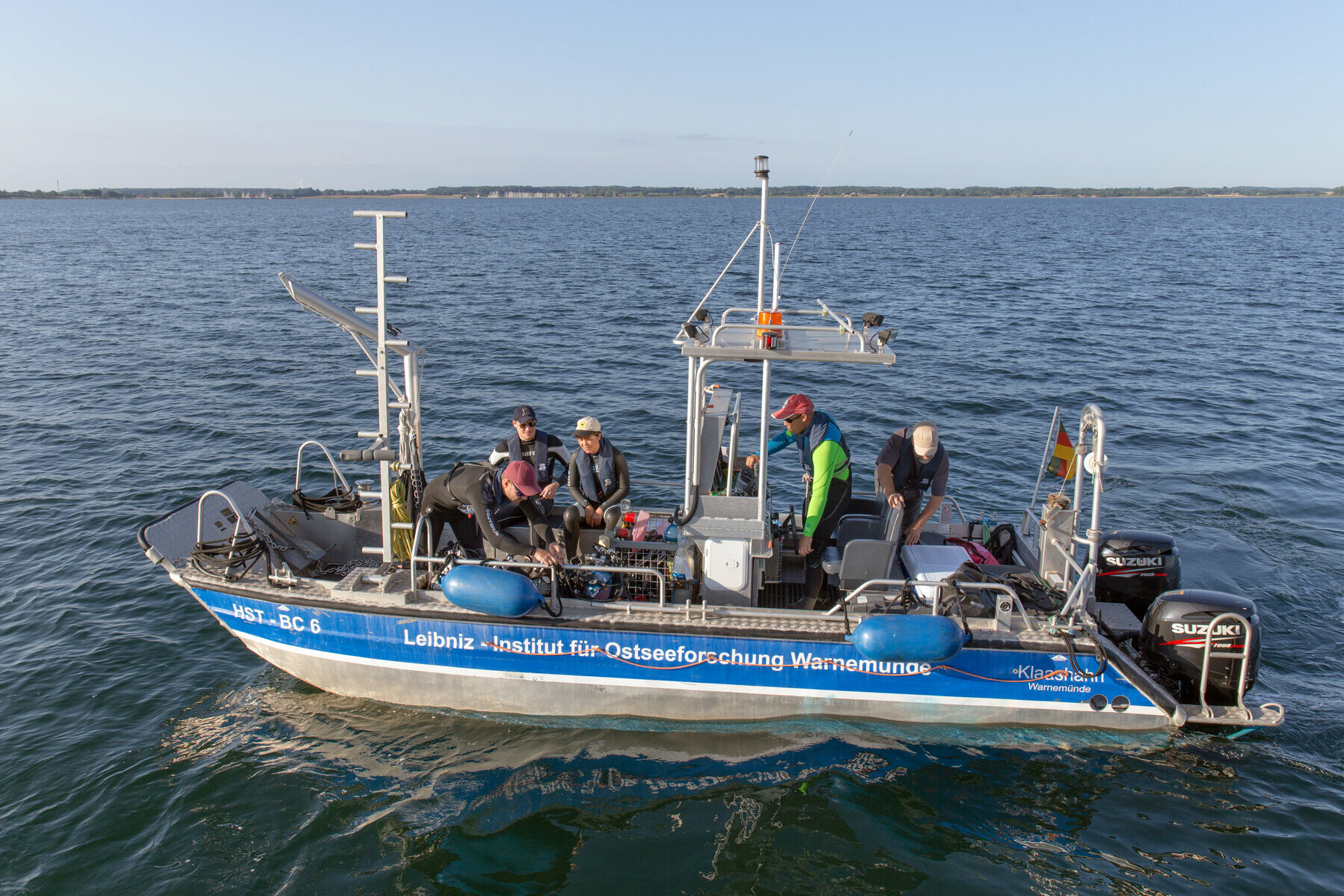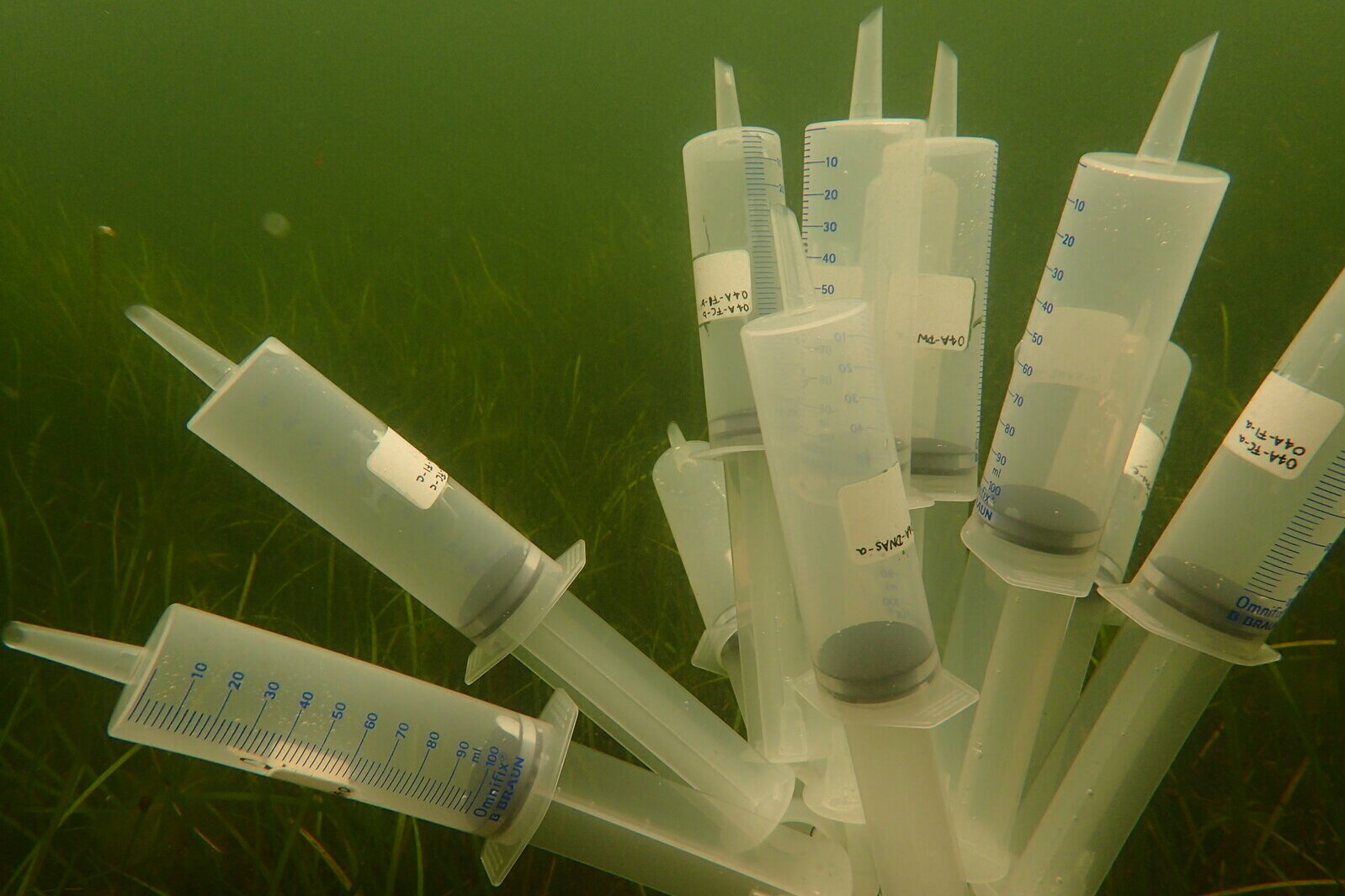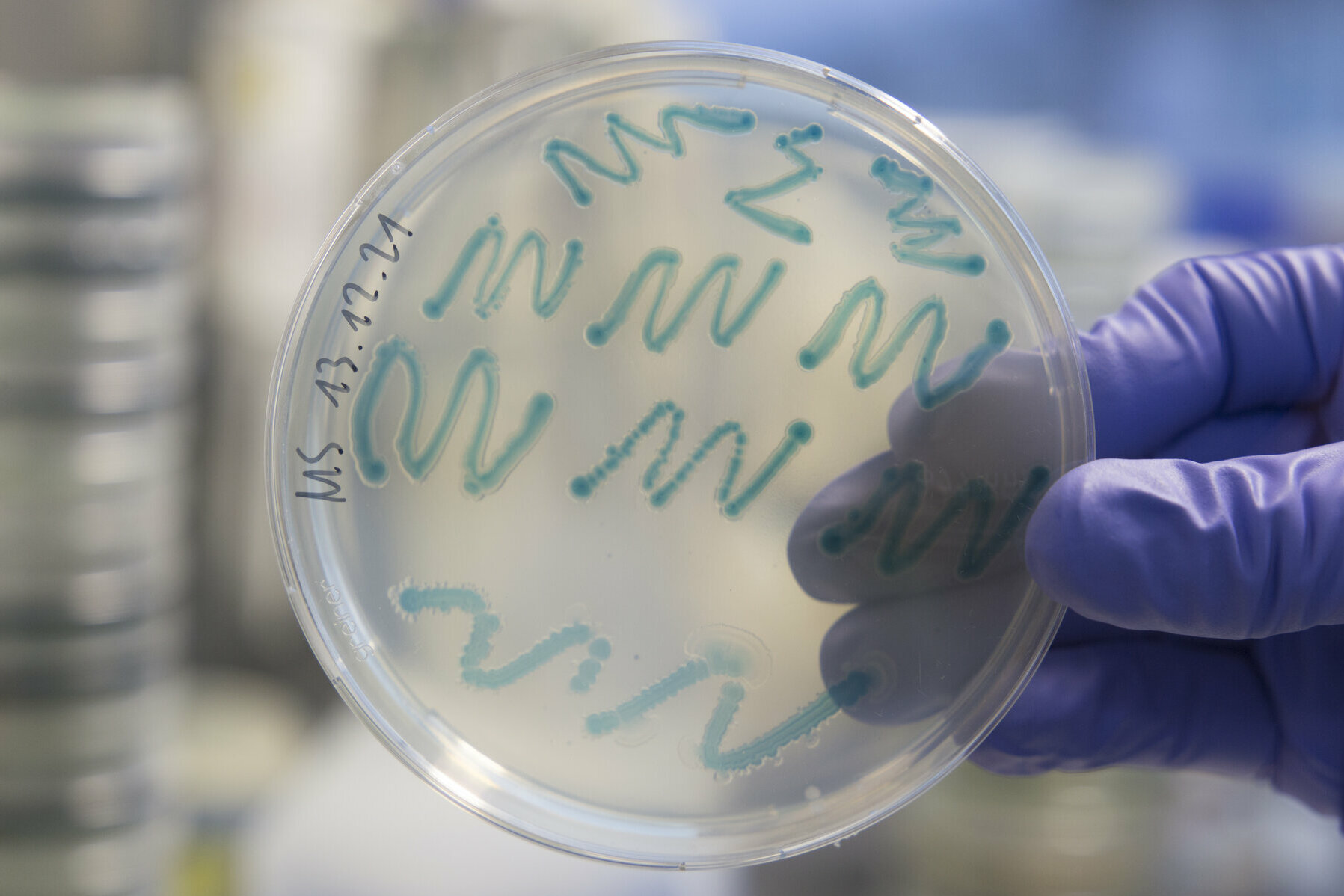A fundamental understanding of the oceans is the most important prerequisite for the protection of the marine environment as well as for the development of sustainable utilization concepts of marine resources. Despite an increasing intensity of use of the oceans, essential aspects of the underlying ecosystem processes are often unknown or barey understood. Efficient monitoring is therefore necessary to ensure the conservation and responsible use of the oceans and to quantify the impacts of human activities on marine systems. In particular, to predict dynamic processes over large areas and volumes, data is needed that is collected as comprehensively as possible and with high temporal frequency over long periods of time. This is the only way to estimate the effects of human activities on different spatial scales, e.g. on ocean acidification, increased algal growth due to eutrophication, or even on the dynamics of coastal structures. "Ocean Lense" outlines the vision – like a magnifying glass – to capture the ecological state of the ocean at a glance.
Corresponding preliminary work has been done on this topic at the Rostock site. The Environmental Microbiology working group at the Leibniz Institute for Baltic Sea Research (IOW) is in charge. The institute has fully equipped molecular and biological laboratories up to safety level 2. A comprehensive bioinformatics database consisting of amplicon and GENOMICS data from Baltic Sea samples forms the basis for future recording and assessment of environmental conditions in marine ecosystems. The focus is on the role of microorganisms in anthropogenically influenced marine systems and their introduction into explicitly society-relevant research. Increasingly, microbial analyses are being performed semi-autonomously at offshore stations. In recent years, this has been extended to higher organisms using eDNA technology. With two first use cases (detection of TNT in sediment and glyphosate in water) for the implementation of a complete chain from automated sampling and fixation to isolation, sequencing and bioinformatic analysis of the eDNA material using AI methods, the feasibility of the approach could be demonstrated in cooperation with Fraunhofer IGD and the Faculty of Mathematics and Natural Sciences at the University of Rostock.

Prof. Dr.
Matthias Labrenz
Leibniz-Institut für Ostseeforschung Warnemünde (IOW), Biologische Meereskunde
Seestrasse 15
18119 Rostock
+49 381 5197 378
contact by e-mail




Significantly more efficient approaches to collecting and aggregating environmental data are needed to answer important questions about protecting the oceans, despite their use. New development trends such as miniaturization of measurement systems allow rapid and multidimensional in situ measurement of important environmental parameters. In conjunction with mobile self-sufficient carrier platforms, these next-generation sensors can make it possible to efficiently track environmental processes even over large spatial and temporal scales and thus monitor natural areas worthy of protection on an as-needed basis.
To meet the growing demands of the number of sensors and measurements to be performed at an affordable price, genome-based analyses offer multiple application areas with development potential. This is where the flagship project OTC-Genomics will fit in, initially using AFISsys to develop autonomous sampling, and later detectors for specific perturbations (e.g. pollutants, invasive species, microplastics) in the ecosystem based on the vision of an efficient eDNA-based measurement method.
Against the backdrop of increased human use of the oceans, the growth potential of this market emerges: increased political and societal pressure to make this use sustainable and to accurately monitor its impacts necessitate substantial improvement and expansion of monitoring. The growth potential of the market is difficult to quantify, but can be inferred simply from the need for new sensor technologies as a prerequisite for implementing key EU policy goals, such as achieving Good Environmental Status (GES) under the Marine Strategy Framework Directive. The implementation of the UN Sustainable Development Goals will also further increase the demand for efficiently deployable sensor standards.
The goal of OTC-Genomics is to extend existing environmental monitoring methods of aquatic habitats by new innovative analytical methods based on microbial nucleic acids (16S rRNA genes) as well as freely available environmental nucleic acids (eDNA; 18S rRNA genes) from water samples. Using the western Baltic Sea as an example, OTC-Genomics for a better insight will develop the necessary basic research, instrument development, bioinformatics, and artificial intelligence (AI) and provide them as a user-friendly overall tool. In this context, new sampling methods at autonomous offshore stations will enable much higher temporal and spatial resolution in the study of microbial/macrobial communities. The long-term goal is to develop new methodological standards and norms that will enable a forward-looking, cost-effective, and parameter-open environmental monitoring procedure.
The long-term goal is to develop new methodological standards and norms that will enable a forward-looking, cost-effective, and parameter-open environmental monitoring process.
In the first three years of the project, OTC-Genomics will focus on (1) developing a reproducible and semi-autonomous processing pipeline and (2) investigating whether the analysis of microbial data using various machine learning methods can infer or identify current contaminant loads in the aquatic environment.
(Matthias Labrenz IOW, Theodor Sperlea IOW)

Prof. Dr.
Matthias Labrenz
Projektleitung, Leibniz-Institut für Ostseeforschung Warnemünde (IOW), Biologische Meereskunde
+49 381 5197 378
contact by e-mail